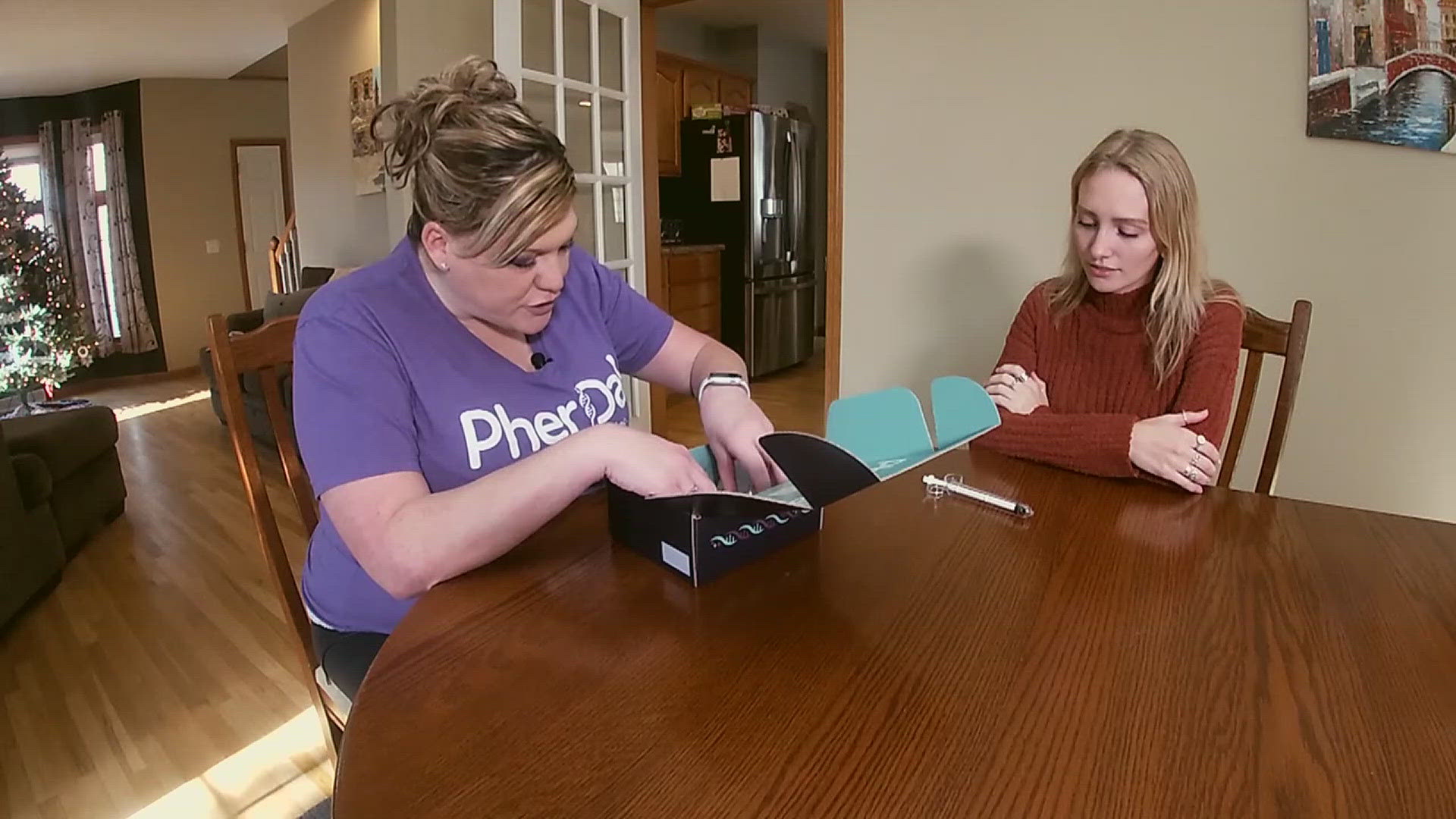DIXON, Ill. — TIME Magazine is recognizing a Dixon woman for creating one of the top inventions of the year.
PherDal is the only FDA-cleared, sterile, at-home insemination kit in the country. It's pronounced like 'fertile' while nodding to its founder's PhD roots. It's been named to TIME Magazine's 2024 Best Inventions List.
But how does it work? PherDal is a noninvasive, intracervical insemination device. Users deposit a sperm sample into the sterile cup and then use a syringe to deposit the sample into the cervix. It resembles the feeling of a pap smear. The PherDal syringe is longer than other at-home kits in the country, allowing users to deposit sperm directly into the opening of the cervix. This makes the sperm sample less susceptible to interference.
Each kit retails for $199 and contains three chances to conceive. It includes three syringes, three collection units and instructions. PherDal is made from patented IVF-grade materials, sourced and manufactured in the Midwest.
Since hitting the market, there have been 75 PherDal babies born, including the inventor's own children.
PherDal Fertility Science was founded by Dr. Jennifer Hintzsche. She and her husband spent a year trying to conceive before she was finally diagnosed with 'unexplained infertility.'
However, an unsatisfactory diagnosis wasn't the end of their troubles. With the label 'infertile,' Hintzsche realized that her insurance would no longer help pay for her pregnancy journey.
As is the case with most insurance companies, Hintzsche and her husband were only covered up to their diagnosis. Everything after that, including the expensive fertility treatments, was going to fall squarely on their shoulders and their pocketbook.
One of the most common avenues for treatment is in vitro fertilization. Just a single IVF cycle can range from $15,000 to $30,000.
"We went into this appointment with all of this hope," Hintzsche said. "And we came out with a loan application for $10,000 and a treatment plan when they didn't know what was wrong."
That's when she decided to put her PhD in bioinformatics to use. Then, within two months of creating PherDal's pilot version, Hintzsche found herself pregnant.
News 8 profiled Hintzsche and her family back in December of 2022. You can find that full story here.
Globally, one in six people have experienced infertility. According to the CDC, 13.4% of women between the ages of 15 and 49 in the United States have difficulty getting pregnant. This includes 13.8% of women who have never had children and 13.1% of women who have had one or more children.
"PherDal's mission is to empower and provide women struggling with infertility with a simple yet science-backed, at-home fertility device to improve their chances of having a child," Hintzsche said in a press release.
Hintzsche joined The Current on News 8 to discuss the TIME Magazine honor. When asked what her advice is to other inventors and dreamers out there, she said to do something scared, instead of letting fear hold you back from what you could accomplish. You can watch her full interview in the above video.
Tune into The Current from 4 to 5 p.m. on weekdays to catch live interviews impacting you, your family and your hometown as well as all of the biggest headlines of the day.

